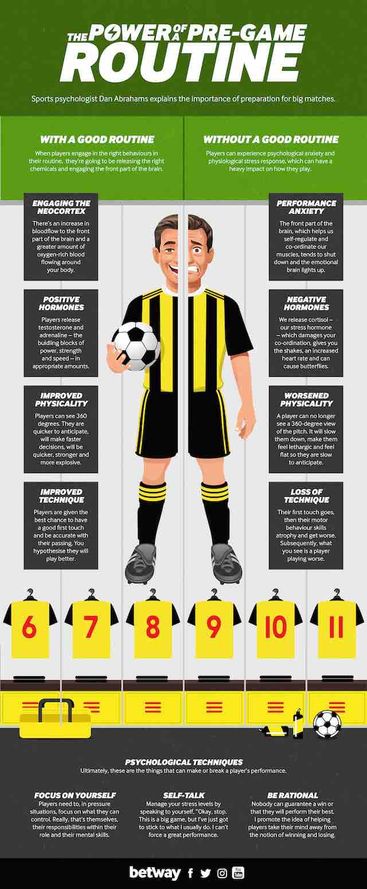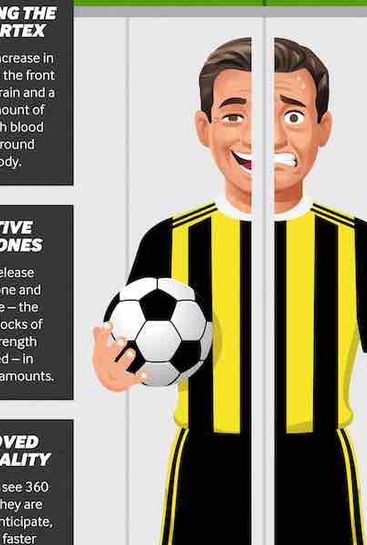Back-to-back Premier League champions Manchester City will see to complete the domestic treble when they face Watford in the FA Cup final this weekend.
They are hot favourites to defeat the Hornets to pick up a third piece of silverware this season, so can Javi Gracia’s side do anything to step them.
There is no doubt that Watford will be the underdogs at Wembley this weekend, but so were Wigan Athletic when they beat City in the 2013 FA Cup final.
Leading sports psychologist Dan Abrahams, who works as a consultant to Bournemouth and Swedish side Ostersunds, and has previously worked with the FA, PFA, LMA and a host of Premier League and Championship clubs over the course of his 19-year career, has given his input on how the Hornets can record an upset by beating Pep Guardiola’s title winners.
He reckons much will depend on how well Watford deal with the performance anxiety that can be brought on by playing on a big occasion in a big stadium.
Speaking with Betway Football, Dan said: “The implications of the different atmosphere can bring performance anxiety, which can be crippling.
“As the name performance anxiety suggests, players can experience psychological anxiety and physiological stress response.
“Players develop tunnel vision, where they no longer see a 360-degree view of the pitch. It will make them feel lethargic and flat, so they’re slow to anticipate and are slow to make decisions.
“Their first touch goes and their motor behaviour, which is essentially their technique, atrophies. Subsequently, what you see is a player playing worse.”
He believes the best way of limiting the potential pitfalls of performance anxiety is to keep the game as close to a normal match as possible. That means much will depend on the ability of Gracia and his backroom staff to keep the players calm and sticking to their usual pre-match build-up.
The old adage about playing the game, not the occasion, is as true as ever and begins well before kick-off, it seems.
Dan continued: “Sticking to your normal routine is really important.
“You’re trying to help players perceive the game in the same way they perceive every game.”
The fact remains that it is more than just a game, so Dan also suggests players adopt psychological techniques to help them trick their brain into treating the cup final as a run-of-the-mill fixture.
He added: “Self-talk, breathing techniques and directing your focus an attention can help.
“A player can manage their stress levels by speaking to themselves: ‘OK, stop. This is a big game, but all I’ve got to do is stick to what I usually do. I can’t force a great performance or guarantee a great result. I’ve just got to focus on what I can control.’
“It’s the ‘controlling the controllables’ philosophy.”
That means players need to focus on what they can control – their own preparation, mindset and performance – rather than wasting energy on the prospect of winning and what that would mean.
Dan said: “Players need to, in pressure situations, focus on themselves.
“That’s their responsibilities within their role, their mental skills, having a consistent personality on the pitch, playing with positive intention and at the right intensity.
“It’s easy to say these things, which seem small things and throwaway remarks but, ultimately, these can make or break a player’s performance.”
The techniques in question don’t just have mental benefits, they can contribute towards a player’s physical performance.
Dan explained: “There’s an increase in bloodflow to the front part of the brain and a greater amount of oxygen-rich blood flowing around your body.
“Players also release hormones such as testosterone and adrenaline – the building blocks of power, strength and speed – as well as dopamine – your interest chemical – and endorphins, which are your feel-good chemicals, in the appropriate amounts.
“That would result in a player being quicker to anticipate, make faster and maybe more accurate decisions. They will be quicker, stronger and more explosive.
“Obviously those are the kind of things you want.”
Whether these mental techniques are ultimately enough to beat City is a different matter, but they will ensure Watford are in the best condition to record a shock win.
You can see Dan’s advice to Watford in infographic form below.






